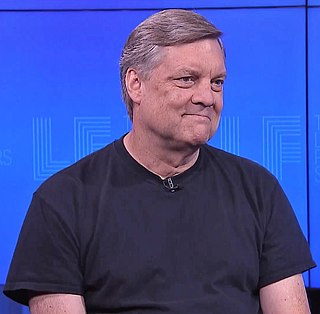A Quote by Henry Giroux
Until educators, individuals, artists, intellectuals and various social movements address how the metaphysics of casino capitalism, war and violence have taken hold on American society (and in other parts of the world) along with the savage social costs they have enacted, the forms of social, political, and economic violence that young people are protesting against, as well as the violence waged in response to their protests, will become impossible to recognize and act on.
Quote Topics
Act
Address
Against
Along
American
American Society
Artists
Become
Capitalism
Casino
Costs
Economic
Educators
Forms
Hold
How
Impossible
Individuals
Intellectuals
Metaphysics
Movements
Other
Parts
People
Political
Protesting
Protests
Recognize
Response
Savage
Social
Social Movements
Society
Taken
Until
Various
Violence
War
Well
Will
World
Young
Young People
Related Quotes
We must realize that violence is not confined to physical violence. Fear is violence, caste discrimination is violence, exploitation of others, however subtle, is violence, segregation is violence, thinking ill of others and condemning others are violence. In order to reduce individual acts of physical violence, we must work to eliminate violence at all levels, mental, verbal, personal, and social, including violence to animals, plants, and all other forms of life.
When we speak about a culture of violence in the American society, we're not just talking about the mass killers. We're also talking about that we, as a society, and many of us as individuals accept violence as part of life because we have become numb to it, being so exposed to it in various forms of media.
I will not tire of declaring that if we really want an effective end to violence we must remove the violence that lies at the root of all violence: structural violence, social injustice, exclusion of citizens from the management of the country, repression. All this is what constitutes the primal cause, from which the rest flows naturally.
I must remind you that starving a child is violence. Suppressing a culture is violence. Neglecting school children is violence. Punishing a mother and her family is violence. Discrimination against a working man is violence. Ghetto housing is violence. Ignoring medical need is violence. Contempt for poverty is violence.
There is a need for educators, young people, artists and other cultural workers to develop an educative politics in which people can address the historical, structural and ideological conditions at the core of the violence being waged by the corporate and repressive state and to make clear that government under the dictatorship of market sovereignty and power is no longer responsive to the most basic needs of young people - or most people for that matter.
Violence, with its ever-present economy of uncertainty, fear, and terror, is no longer merely a side effect of police brutality, war, or criminal behavior. It has become fundamental to neoliberalism as a particularly savage facet of capitalism. And in doing so it has turned out to be central to legitimating those social relations in which the political and pedagogical are redefined in order to undercut possibilities for authentic democracy.
All violence is injustice. Responding to violence with violence is injustice, not only to the other person but also to oneself. Responding to violence with violence resolves nothing; it only escalates violence, anger and hatred. It is only with compassion that we can embrace and disintegrate violence. This is true in relationships between individuals as well as in relationships between nations.
Against the tyranny of forgetting, educators, young people, social activists, public intellectuals, workers and others can work to make visible and oppose the long legacy and current reality of state violence and the rise of the punishing state. Such a struggle suggests not only reclaiming, for instance, education as a public good but also reforming the criminal justice system and removing the police from schools.
Venezuela, Bolivia and Ecuador lived through times of cruel and ruthless capitalism where the workers, the masses of the population, saw themselves living in a precarious state of employment and subsistence conditions. The impact of this reality took hold and impacted the evolution of the social situation of those countries and even though that produced movements that were not exactly political movements but social movements.
I think any time you have any kind of social ill, not just domestic violence...as much as it's about the act, the obvious theme of domestic violence, Domestic Violence Awareness Month is also about how men deal with their emotions. It's not just like who gets brutalized; sometimes it's women that are abusing men, too. I think it's just an opportunity for us to look at ourselves. How do we treat each other? Why do we treat each other that way?
Widespread violence now functions as part of an anti-immune system that turns the economy of genuine pleasure into a mode of sadism that creates the foundation for sapping democracy of any political substance and moral vitality. The predominance of the disimagination machine in American society, along with its machinery of social death and historical amnesia, seeps into in all aspects of life, suggesting that young people and others marginalized by class, race and ethnicity have been abandoned.
The most important domestic challenge facing the U.S. at the close of the twentieth century is the re-creation of fatherhood as avital social role for men. At stake is nothing less than the success of the American experiment. For unless we reverse the trend of fatherlessness, no other set of accomplishments--not economic growth or prison construction or welfare reform or better schools--will succeed in arresting the decline of child well-being and the spread of male violence. To tolerate the trend of fatherlessness is to accept the inevitability of continued social recession.






























